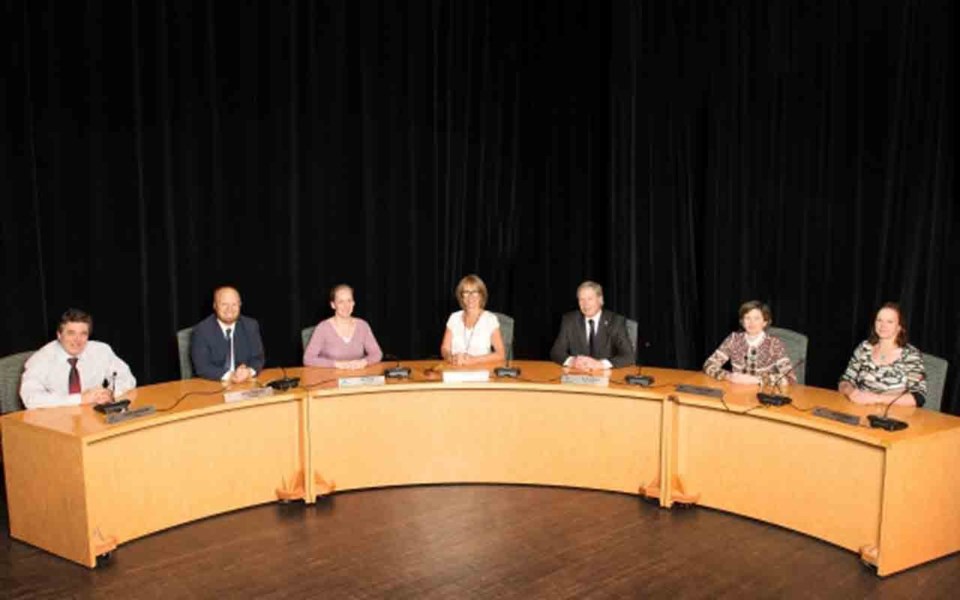One of the more astonishing things about Whistler's previous council was that, over the term spanning 2011 to 2014, you could count the number of dissenting votes on one hand.
There was no doubt a certain admirable synergy between the members of group; each councillor's area of expertise seemed to complement the others, and that balance resulted in a myriad of accomplishments.
But you can't overstate how odd it was that, as a council that considered hundreds of development projects, bylaws, and rezoning amendments over its term, there was barely so much as a vote out of step with the rest of the group.
That harmonious approach starts to make sense, however, when you consider the heated atmosphere officials were dealing with at the time. The introduction of pay parking, among other unpopular policies, shook Whistlerites out of their post-Olympic euphoria, and they showed their displeasure at the polls, dumping the entire council for a fresh slate in the 2011 election. So walking into municipal hall with a unified voice seemed the logical thing to do.
And while there's no denying the council of the day was a well-oiled legislative machine, that level of compatibility didn't exactly lend itself to much healthy debate. Rarely, if ever, was there a heated exchange or a contentious dispute. It wasn't unusual for a council meeting to wrap up in just two hours, a far cry from the regular all-night slogs that marked previous councils.
The same cannot be said of the council of today currently. Last week's five-hour meeting was bookended by an impassioned debate over the RMOW's budgeting process that was sparked by Coun. Sue Maxwell, one of four fresh faces at municipal hall after the last election, each with their own set of experiences and values that it's safe to say don't always align.
The more-than-30-minute impasse was unusual given it's not all that common to see elected officials lose their cool in the staid setting of a municipal meeting. But it was also unusual precisely because we've so rarely seen this kind of fervent debate between local officials.
And say what you will about Maxwell's criticisms — I don't cover the political beat often enough or have an in-depth enough knowledge of municipal financial planning to have a definitive opinion one way or the other on the RMOW's budgeting process — but the fact that she forced the debate in such a public way should be seen as a welcome and long overdue development at municipal hall.
Some will condemn Maxwell for raising the issue the way she did. Certainly, Mayor Nancy Wilhelm-Morden and CAO Mike Furey were vocal in their belief that a council meeting held months after the RMOW's Five-Year Financial Plan was discussed and drafted was not the appropriate setting.
But according to Maxwell, she was left with little choice but to bring the matter into the light after apparently raising her concerns in closed meetings, out of sight of the public eye. For a municipality that has been roundly criticized by residents for making too many decisions behind closed doors — Ironman springs to mind — a little healthy, public debate should be encouraged, not maligned.
Add to that the fact that the RMOW has one of the most stringent communications policies for a municipality of its size (since 2012, reporters have not been permitted to interview any RMOW staff on the record, only elected officials), and you begin to understand why a little more transparency behind the municipal decision-making process would go a long way.
It seems no matter where you go in Whistler these days — on the bus, riding the gondola, in the coffee shop — you don't have to wait long to overhear a debate on the many challenges facing our community. I'd encourage our elected officials to take a page from residents and start having those same debates in a similarly public forum.




